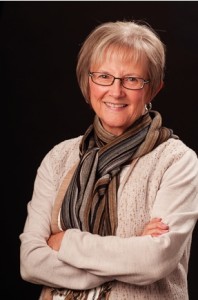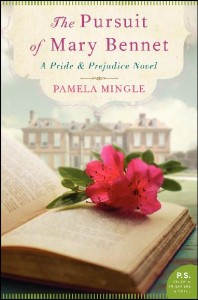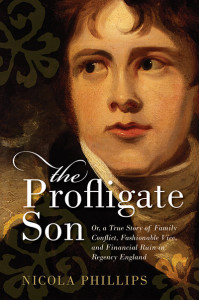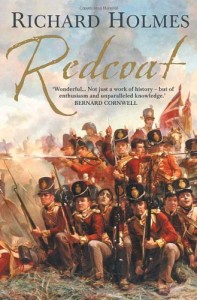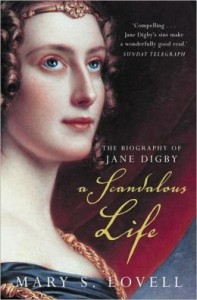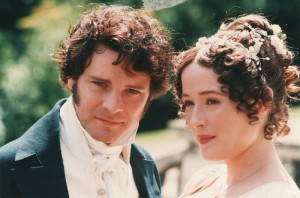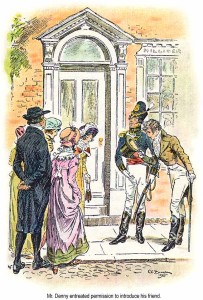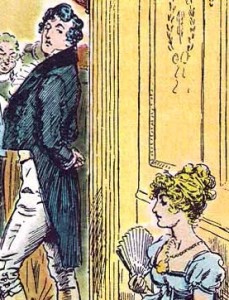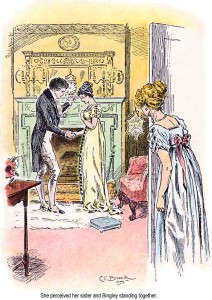I’m closing out Jane Austen’s birthday week by offering copies of the Cozy Classics board book editions of Pride and Prejudice and Emma, along with my novella A Dream Defiant in your choice of electronic format. Comment by 9 PM Pacific Standard Time on Sunday (that’s midnight Eastern) for a chance to win!
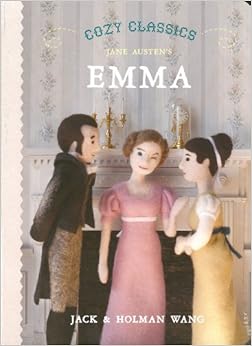
I have a humiliating confession to make:
The first time I read Jane Austen, I got about a chapter in and then quit.
I was 14 or so, and I’d taken to reading my hometown library’s extensive collection of Georgette Heyer, Clare Darcy, and Marion Chesney. They were real, adult love stories I didn’t have to hide from my mom. Which wasn’t the case with historical romance in general. Anything with the lurid “bodice ripper” covers so prevalent in the 1980’s wasn’t quite forbidden to me, but they led to lectures on appropriate entertainment, the importance of waiting till marriage to have sex, etc. I occasionally snuck such books into the house regardless, but for the most part I just found ways to read what I liked that flew under Mom’s radar–e.g. you’d never guess how much sex is in the Earth’s Children series by the covers.
But I digress. Our librarian noticed me working my way through Heyer, Darcy, and Chesney and said I really MUST try this book called Pride and Prejudice.
So I checked it out, took it home, and tried to read it. But I couldn’t quite follow what was going on somehow, and the arch wit of the writing completely went over my earnest, angsty young head. So I gave up and set it aside.
I didn’t try Austen again until just after college, when I was 23 or 24. Again I started with Pride and Prejudice–and this time it instantly clicked. I plowed through all six of her novels one after the other, and I’ve re-read them more times than I can count in the years since.
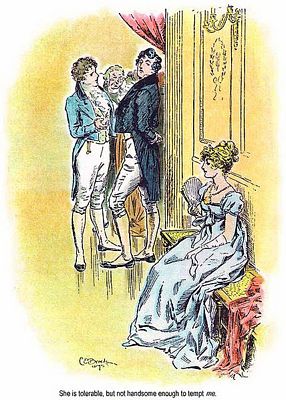
I’m still baffled and not a little embarrassed by my adolescent self’s failure to Get It. It’s not like I was a poor reader–I loved Jane Eyre, and I read Romeo and Juliet for fun at 12, albeit an annotated version with footnotes clarifying all the language and references I didn’t yet have the maturity and experience to pick up on my own. Maybe I would’ve done better with an annotated Austen to explain the entail, the relative social positions of the Bennetts, Darcys, and Bingleys, and everything else that baffled me then but made perfect sense a decade later.
Or maybe I just wasn’t for anything that wry and subtle. Those Regencies I was plowing through were by far the least angsty and dramatic fiction I was reading at the time, and even Heyer isn’t quite in the same league as Austen for subtlety, IMHO.
What about you? How old were you when you got your first taste of Austen, and did you immediately connect to her stories? Do you have a favorite book by any author that didn’t work the first time you read it?

